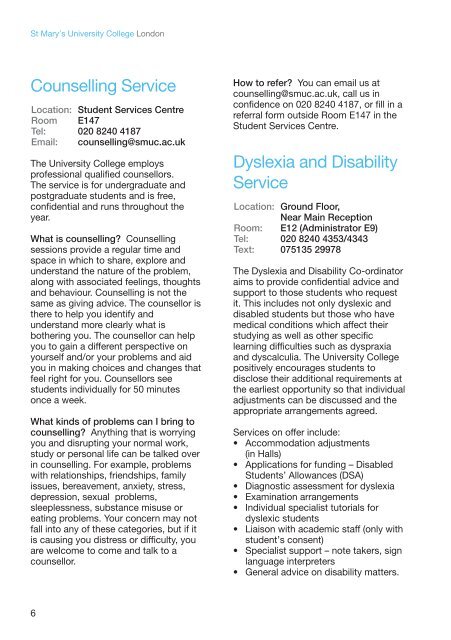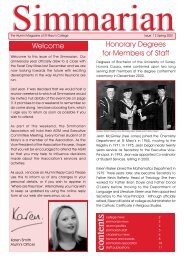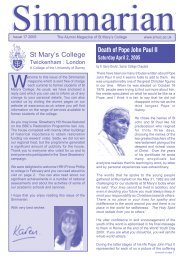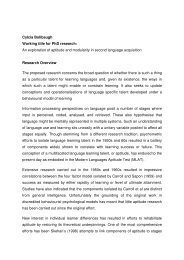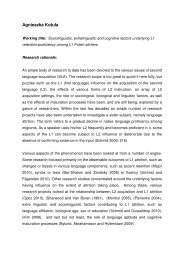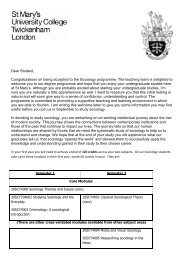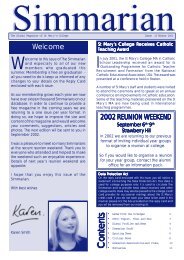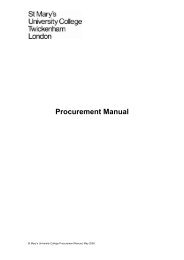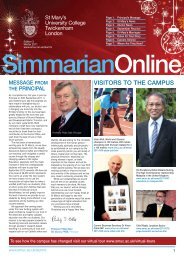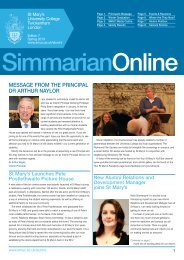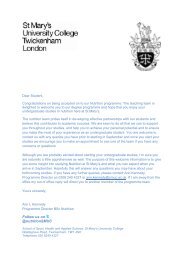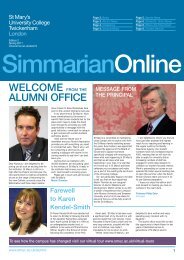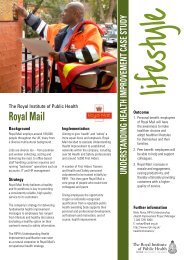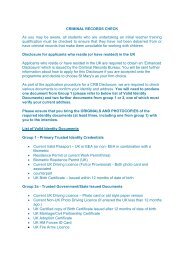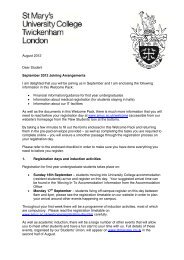Student Services Handbook 2012/2013 - St Mary's University College
Student Services Handbook 2012/2013 - St Mary's University College
Student Services Handbook 2012/2013 - St Mary's University College
Create successful ePaper yourself
Turn your PDF publications into a flip-book with our unique Google optimized e-Paper software.
<strong>St</strong> Mary’s <strong>University</strong> <strong>College</strong> London<br />
Counselling Service<br />
Location: <strong><strong>St</strong>udent</strong> <strong>Services</strong> Centre<br />
Room E147<br />
Tel: 020 8240 4187<br />
Email: counselling@smuc.ac.uk<br />
The <strong>University</strong> <strong>College</strong> employs<br />
professional qualified counsellors.<br />
The service is for undergraduate and<br />
postgraduate students and is free,<br />
confidential and runs throughout the<br />
year.<br />
What is counselling? Counselling<br />
sessions provide a regular time and<br />
space in which to share, explore and<br />
understand the nature of the problem,<br />
along with associated feelings, thoughts<br />
and behaviour. Counselling is not the<br />
same as giving advice. The counsellor is<br />
there to help you identify and<br />
understand more clearly what is<br />
bothering you. The counsellor can help<br />
you to gain a different perspective on<br />
yourself and/or your problems and aid<br />
you in making choices and changes that<br />
feel right for you. Counsellors see<br />
students individually for 50 minutes<br />
once a week.<br />
What kinds of problems can I bring to<br />
counselling? Anything that is worrying<br />
you and disrupting your normal work,<br />
study or personal life can be talked over<br />
in counselling. For example, problems<br />
with relationships, friendships, family<br />
issues, bereavement, anxiety, stress,<br />
depression, sexual problems,<br />
sleeplessness, substance misuse or<br />
eating problems. Your concern may not<br />
fall into any of these categories, but if it<br />
is causing you distress or difficulty, you<br />
are welcome to come and talk to a<br />
counsellor.<br />
How to refer? You can email us at<br />
counselling@smuc.ac.uk, call us in<br />
confidence on 020 8240 4187, or fill in a<br />
referral form outside Room E147 in the<br />
<strong><strong>St</strong>udent</strong> <strong>Services</strong> Centre.<br />
Dyslexia and Disability<br />
Service<br />
Location: Ground Floor,<br />
Near Main Reception<br />
Room: E12 (Administrator E9)<br />
Tel: 020 8240 4353/4343<br />
Text: 075135 29978<br />
The Dyslexia and Disability Co-ordinator<br />
aims to provide confidential advice and<br />
support to those students who request<br />
it. This includes not only dyslexic and<br />
disabled students but those who have<br />
medical conditions which affect their<br />
studying as well as other specific<br />
learning difficulties such as dyspraxia<br />
and dyscalculia. The <strong>University</strong> <strong>College</strong><br />
positively encourages students to<br />
disclose their additional requirements at<br />
the earliest opportunity so that individual<br />
adjustments can be discussed and the<br />
appropriate arrangements agreed.<br />
<strong>Services</strong> on offer include:<br />
• Accommodation adjustments<br />
(in Halls)<br />
• Applications for funding – Disabled<br />
<strong><strong>St</strong>udent</strong>s’ Allowances (DSA)<br />
• Diagnostic assessment for dyslexia<br />
• Examination arrangements<br />
• Individual specialist tutorials for<br />
dyslexic students<br />
• Liaison with academic staff (only with<br />
student’s consent)<br />
• Specialist support – note takers, sign<br />
language interpreters<br />
• General advice on disability matters.<br />
6


